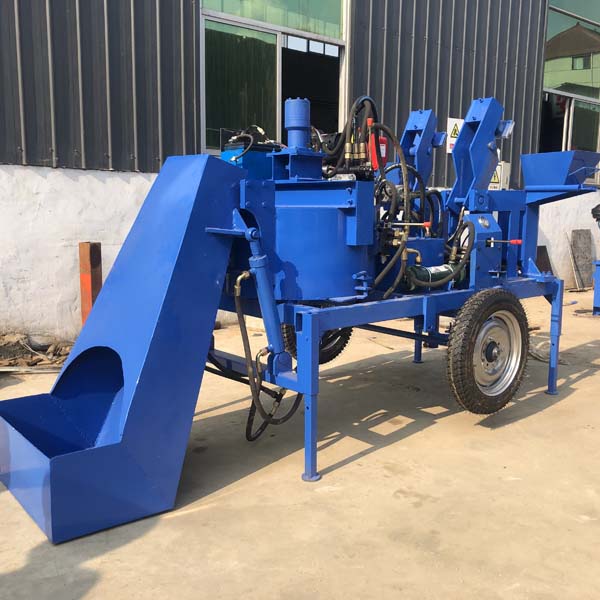
Image source Aiweibrickmachine
Blockchain Technology in Supply Chain Management for Concrete Block Production
Blockchain technology, best known for its association with cryptocurrencies, is making waves in various industries, including supply chain management. For the concrete block production sector, where transparency, traceability, and efficiency are paramount, blockchain offers transformative solutions. In this comprehensive exploration, we delve into how blockchain technology can revolutionize supply chain management in the concrete block production industry.
Section 1: Understanding Blockchain Technology
1.1 What Is Blockchain?
Blockchain is a decentralized and distributed ledger technology that records transactions across multiple computers in a secure and transparent manner. Each transaction, or block, is linked to the previous one, forming a chain of immutable records.
1.2 How Does Blockchain Work?
Blockchain relies on consensus mechanisms, such as proof of work or proof of stake, to validate and add new transactions to the ledger. Once a transaction is added, it becomes a permanent part of the blockchain.
Section 2: The Supply Chain Challenges in Concrete Block Production
2.1 Complex Supply Chains
Concrete block production involves various suppliers, manufacturers, distributors, and construction sites, resulting in complex supply chains with multiple stakeholders.
2.2 Quality Control
Ensuring the quality of raw materials, such as aggregates and cement, is crucial to producing durable and reliable concrete blocks.
2.3 Transparency and Traceability
Tracking the origin and journey of materials throughout the supply chain is essential for compliance, quality assurance, and sustainability.
Section 3: Blockchain Solutions in Concrete Block Production
3.1 Supply Chain Transparency
Blockchain provides real-time visibility into the entire supply chain, allowing stakeholders to monitor the movement of materials, products, and payments.
3.2 Traceability and Authentication
Every step of the supply chain can be recorded on the blockchain, enabling traceability of materials to their source and verifying their authenticity.
3.3 Smart Contracts
Smart contracts are self-executing agreements with predefined rules. In concrete block production, they can automate processes like quality inspections, payments, and order fulfillment.
3.4 Data Security
Blockchain’s cryptographic techniques ensure the security and integrity of data, reducing the risk of fraud or tampering.
Section 4: Benefits of Blockchain in Concrete Block Production
4.1 Reduced Fraud and Counterfeiting
Blockchain’s immutability and traceability make it nearly impossible for fraudulent materials to enter the supply chain.
4.2 Improved Quality Control
By recording quality control data on the blockchain, manufacturers can maintain consistent product quality.
4.3 Enhanced Efficiency
Automation through smart contracts streamlines processes, reduces paperwork, and minimizes delays.
4.4 Sustainability and Compliance
Blockchain enables transparent reporting of environmental and sustainability metrics, ensuring compliance with regulations.
Section 5: Case Studies
5.1 IBM Food Trust
IBM’s Food Trust platform uses blockchain to track the origin and journey of food products, ensuring safety and transparency. A similar approach can be adopted for concrete block materials.
5.2 De Beers’ Diamond Blockchain
De Beers uses blockchain to track the authenticity of diamonds, providing a model for verifying the authenticity of concrete block materials.
Section 6: Challenges and Adoption
6.1 Integration Challenges
Implementing blockchain in an existing supply chain can be complex and requires collaboration among stakeholders.
6.2 Education and Training
Stakeholders may require education and training to understand and use blockchain effectively.
6.3 Privacy Concerns
Balancing transparency with data privacy can be a challenge, especially in sensitive supply chains.
Section 7: Future Outlook
7.1 Industry Adoption
As blockchain technology matures and gains wider acceptance, more companies in the concrete block production sector are likely to embrace it.
7.2 Interoperability
Efforts are ongoing to develop standards for blockchain interoperability, allowing different blockchains to work together seamlessly.
7.3 Sustainability and Green Supply Chains
Blockchain can play a pivotal role in verifying the sustainability of materials and promoting green supply chains in the construction industry.
Section 8: Conclusion
Blockchain technology has the potential to revolutionize supply chain management in concrete block production. By enhancing transparency, traceability, and efficiency, blockchain can help manufacturers ensure the quality of materials, reduce fraud, and meet sustainability goals. While challenges exist, the benefits far outweigh the hurdles, making blockchain an essential tool for the future of the concrete block production industry. As more companies adopt this transformative technology, the entire supply chain will become more transparent, efficient, and secure, benefiting both businesses and consumers alike.
